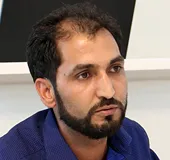-
CENTRES
Progammes & Centres
Location
As Russia’s influence declines, the South Caucasus is shifting toward multipolarity, with Baku and Yerevan seeking new alignments beyond Moscow.

Image Source: Wikipedia
In recent years, instability in the South Caucasus has become more discernible, particularly after Azerbaijan gained complete control over the Armenian enclave of Nagorno-Karabakh. Moscow’s failure to mediate the conflict and its subsequent withdrawal of its peacekeepers from Nagorno-Karabakh led Armenian leaders to look towards the European Union (EU), India, and the United States (US). Russia’s fluctuating decline in the region is also evidenced by the rapid deterioration of its relations with Baku, highlighted by the June 2025 incident involving the detention of 50 Azerbaijani citizens from Yekaterinburg and the subsequent custodial deaths of some detainees. Baku not only cancelled all cultural events scheduled by Russia but also detained two officers, alleged to be members of the Russian Federal Security Service, involved with the Sputnik media channel. Much like Armenia, Baku is seeking support outside the Russian orbit, with its military capabilities bolstered by its traditional ally, Türkiye, and new extra-regional actors such as China and the EU, due to its strategic location, which serves as a conduit between Central Asia and Europe.
Baku not only cancelled all cultural events scheduled by Russia but also detained two officers, alleged to be members of the Russian Federal Security Service, involved with the Sputnik media channel.
The nature of the Moscow-Baku relations is unique in comparison to Moscow’s relations with its post-Soviet neighbours. This is especially true because of Azerbaijan’s ability to maintain its autonomy from Russia, not by expressing interest in projects of integration with the North Atlantic Treaty Organization (NATO) but rather by hedging with Türkiye and maintaining a strong security and defence partnership with Ankara. This partnership has only grown in light of Russia’s position in the first Karakabh war in the 1990s, when Moscow armed Yerevan. However, in the last decade of 20th century, Azerbaijan's economy bolstered due to its vast oil and gas reserves and subsequently, its armed forces underwent military modernisation.
Furthermore, Russia’s annexation of Crimea and its subsequent isolation from the West, manifested in the imposition of sanctions, accelerated structural shifts that had been unfolding since the early 2010s. The expanding geoeconomic footprint of China and the EU, along with Türkiye’s rapidly growing strategic influence, had increasingly begun to erode Russia’s traditional dominance in the region. Following Azerbaijan’s victory in the second Karabakh war in 2020, it captured significant territory lost to Armenia. Following the ceasefire, Russia deployed 2,000 peacekeepers in Nagorno-Karabakh. Three years following the conclusion of the second Karabakh war—and during the second year of Russia’s war in Ukraine—Azerbaijan launched a full-scale offensive in Nagorno Karabakh, establishing complete control over the region. Russia, preoccupied with its campaign in Ukraine and increasingly reliant on Baku within its strategic calculus, was unable to influence the status quo in the South Caucasus.
Moscow’s failure to mediate in the conflict and its withdrawal of peacekeepers from Nagorno-Karabakh have led Armenia to shift away from its traditional ally, Moscow, and have pushed it to improve ties with Türkiye in hopes of establishing diplomatic relations with Baku. Azerbaijan’s relations with Moscow have also deteriorated. Recent incidents, such as the accidental downing of the Azerbaijan Airlines flight by a Russian surface-to-air missile in Grozny, have unleashed a chain reaction contributing to the downward spiralling of the Russia-Azerbaijan relations.
The expanding geoeconomic footprint of China and the EU, along with Türkiye’s rapidly growing strategic influence, had increasingly begun to erode Russia’s traditional dominance in the region.
In early 2025, Baku began clamping down on foreign media, including downsizing and shutting down several media houses in the country, such as the BBC, Voice of America, and Radio Free Europe, in an attempt to regulate foreign media. Incidentally, this list included the Russian state-sponsored media corporation Sputnik. Another prominent Russian institution, Rossotrudnichestvo (Russian house) in Baku, was also shut down. In response, pro-state hackers in Russia allegedly conducted cyberattacks on local Azerbaijani media outlets.
Despite Russia’s ambitions to maintain its influence in the South Caucasus, the region is undergoing significant geopolitical and economic shifts, with new actors emerging increasingly. Moscow’s growing geopolitical isolation from the West has heightened Azerbaijan’s strategic importance as it sits between Iran and Russia, significantly increasing its geoeconomic value for both the EU and China. The EU has ramped up its engagement with both the Caucasus and Central Asia through massive investment in connectivity, as well as rare and critical earth minerals. Following the sanctions on Russia, connectivity between the EU and Central Asia has emerged as the highest priority, particularly the Trans-Caspian Transport Corridor (TITR). The TITR connects the EU with Central Asia and China via the Caucasus and received around US$10.6 billion in investments under the EU’s Global Gateway Strategy in 2024. TITR handled 4.5 million tonnes of container traffic in 2024, aiming for 10 million tonnes by 2027. In January 2025, the EU allocated an additional US$3.5 billion for the modernisation of this route.
Similarly, in 2022, the EU signed a deal to purchase gas from the Caspian Sea region, and by 2024, approximately 7.7 percent of its gas was imported from Azerbaijan. While this volume is not enough to replace Russian supplies, it is considered a strategic move. Both Baku and Brussels have also signed a deal to double natural gas exports to the EU by 2027.
The conflict in Ukraine has further heightened Türkiye's influence in the Caucasus and Central Asia. Ankara’s backing for Azerbaijan has been crucial in bolstering its military capabilities. Additionally, Türkiye fully supports Baku’s claim to Nagorno-Karabakh. As Türkiye’s influence expands, China's geoeconomic power is also evident in the South Caucasus. In 2024, China established a strategic partnership with Azerbaijan, making it the second country in the region after Georgia. Beijing views Azerbaijan as a key participant in the Belt and Road Initiative, and since Baku joined, trade between the two countries has grown fundamentally. With China's support, Azerbaijan has invested heavily in infrastructure projects.
Moscow’s growing geopolitical isolation from the West has heightened Azerbaijan’s strategic importance as it sits between Iran and Russia, significantly increasing its geoeconomic value for both the EU and China.
On 10 July 2025, with diplomatic assistance from Türkiye, the EU, and the US, the leaders of Azerbaijan and Armenia convened in Dubai to work towards normalising relations and to sign a lasting peace agreement. The peace deal will reduce Russia’s influence in the region and also diminish Moscow’s leverage over the South Caucasus. On the other hand, Beijing eagerly awaits the resolution of the conflict between Yerevan and Baku, which is expected to facilitate the opening of a second route to Europe via Azerbaijan, from Southern Armenia to the Nakhichevan enclave, and Türkiye, complementing the existing TITR route via Azerbaijan and Georgia.
Recent events between Azerbaijan and Russia underscore the evolving geopolitical landscape in the South Caucasus, where states are seeking to recalibrate their relations amid the influence of regional and international stakeholders. Russia’s ongoing conflict in Ukraine diminishes its geopolitical sway, compelling both Baku and Yerevan to pursue balanced diplomatic relations that are congruent with the prevailing geopolitical and economic conditions, trends that are unlikely to undergo imminent change. Nevertheless, it remains to be observed how emerging actors will seek to align themselves with the new regional realities, where Moscow continues to possess strategic leverage.
Ayjaz Wani (PhD) is a Fellow with the Strategic Studies Programme at the Observer Research Foundation.
Rajoli Siddharth Jayaprakash is a Junior Fellow with the Strategic Studies Programme at the Observer Research Foundation.
The views expressed above belong to the author(s). ORF research and analyses now available on Telegram! Click here to access our curated content — blogs, longforms and interviews.

Ayjaz Wani (Phd) is a Fellow in the Strategic Studies Programme at ORF. Based out of Mumbai, he tracks China’s relations with Central Asia, Pakistan and ...
Read More +
Rajoli Siddharth Jayaprakash is a Junior Fellow with the ORF Strategic Studies programme, focusing on Russia’s foreign policy and economy, and India-Russia relations. Siddharth is a ...
Read More +